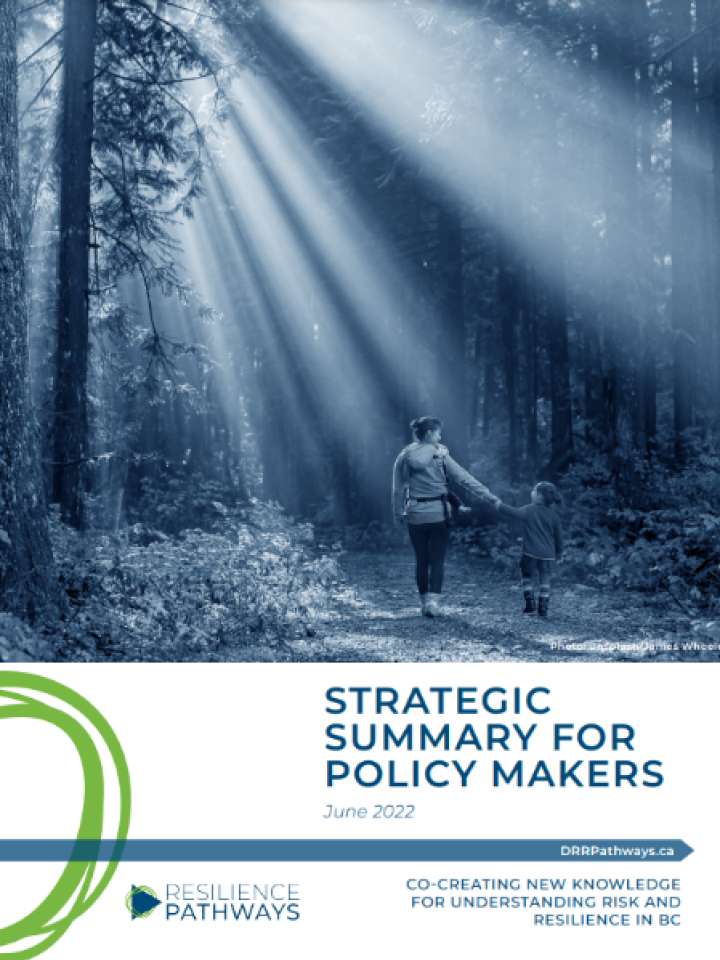Resilience pathways report: Co-creating new knowledge for understanding risk and resilience in British Columbia
This first edition of the Resilience Pathways Report has convened and connected more than 70 experts from a wide range of institutions and disciplines. The intent is to better understand the disaster and climate risk interactions with socioeconomic development in British Columbia (BC) and to identify gaps, challenges, and recommendations for a resilient path forward. The insights, analysis, and recommendations presented in this report are not unique to BC. They can be relevant and valuable for disaster and climate risk management practitioners across Canada and internationally.
The report indicates that with the growing trends of disaster and climate risk due to population growth, climate change, and aging infrastructure, “business as usual” in risk management can have devastating social, environmental, and economic costs. There is great need for innovative, informed, and collaborative planning at all levels to support climate and disaster risk management that is integrated in a wide range of policies and actions, including development planning, across different sectors.
Explore further
